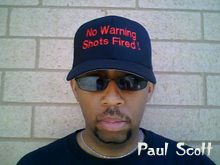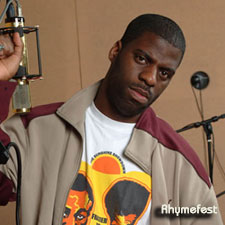
We continue our conversation with Brother Jesse about the racial unrest that took place in Paris Texas earlier this week. He was there to witness the drama as it unfolded. Here Jesse gives us an historical overview of the town. He talks about the sordid history of Paris, which was one of the leading places in the South where Black men were routinely lynched.
He pointed out how harsh racial politics are still a reality by citing the case of 15 year old Shaquanda Cotton. In 2007 Shaquanda was sentenced to seven years in jail for pushing a hall monitor at school after they had a harsh exchange of words. At issue were several white students being allowed to go visit a nurse office while Cotton was denied.
She was already on the radar with school officials who did not like that her mother was an activist who constantly put the school in her crosshairs over racial bias. Cotton who had never been arrested was charged with a felony on a public servant and received 7 years. Her case drew national attention and was a stark reminder that Paris still had serious issues around race relations that needed to be resolved even in 2007.
Brother Jesse talked about this and noted the rash of racially charged incidents that have been occuring all over the United States since Barack Obama had been elected president..
you can check out Brother Jesse write up of his visit
http://jessemuhammad.blogs.finalcall.com/2009/07/racial-tension-flares-in-paris-texas.html


-Davey D-
 The challenge we have with today’s news media is that far too often it is driven by ‘expert’ punditry. We see this all the time where people holding lofty titles like ‘Professor’, ‘journalist’ and ‘doctor’ are invited onto shows as pundits and are assumed to be the definitive expert in the topics being discussed. As a result anything they say is taken as fact and hence gets repeated and passed along to others as gospel.
The challenge we have with today’s news media is that far too often it is driven by ‘expert’ punditry. We see this all the time where people holding lofty titles like ‘Professor’, ‘journalist’ and ‘doctor’ are invited onto shows as pundits and are assumed to be the definitive expert in the topics being discussed. As a result anything they say is taken as fact and hence gets repeated and passed along to others as gospel.



 Lots of people have been weighing in on the passing of Michael Jackson. Even more have been weighing in on on what a proper tribute looks like in the aftermath of the BET Awards fiasco. One person who has stepped to the plate is music icon Chuck D of Public Enemy. he sent out this video the other day of his own tribute to Michael jackson. He explained that he took some time out and put this together on I Movie. It underscored my questions-Where was the simple video montage from BET?
Lots of people have been weighing in on the passing of Michael Jackson. Even more have been weighing in on on what a proper tribute looks like in the aftermath of the BET Awards fiasco. One person who has stepped to the plate is music icon Chuck D of Public Enemy. he sent out this video the other day of his own tribute to Michael jackson. He explained that he took some time out and put this together on I Movie. It underscored my questions-Where was the simple video montage from BET?





 I have actually known about this for a while but literally kept forgetting to print it. (hitting myself in the head). Gene died May 25 of what some describe as early onset Alzheimer’s..
I have actually known about this for a while but literally kept forgetting to print it. (hitting myself in the head). Gene died May 25 of what some describe as early onset Alzheimer’s..